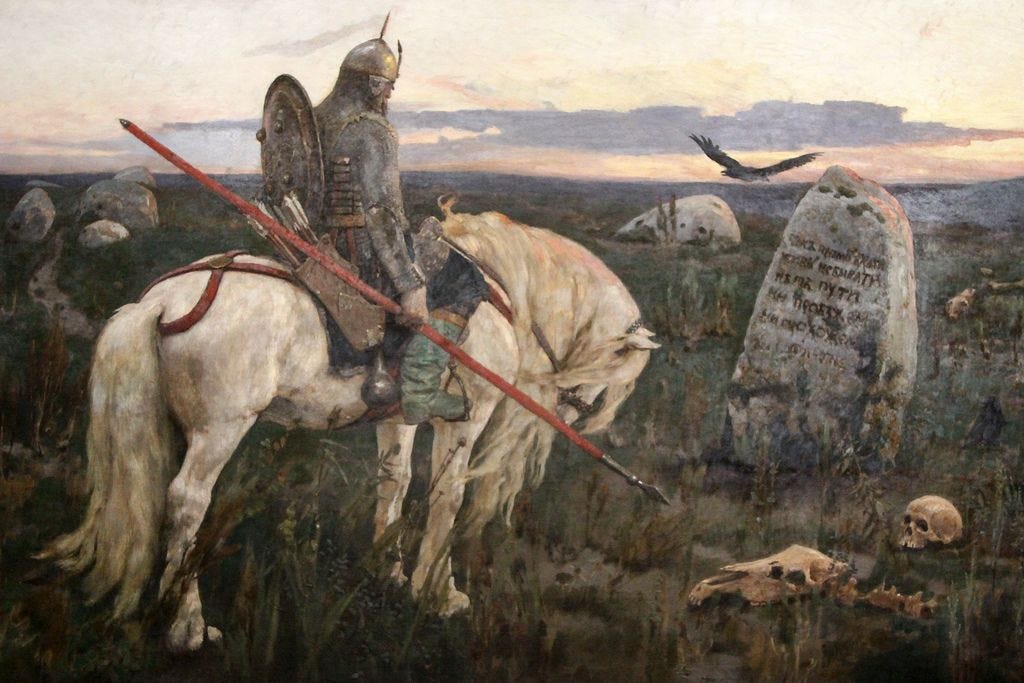
Heraclitus: "everything is change. You can never step into the same river twice.”
Aristotle: "you can't even dip your toe into the same river once."
The world is in constant flux.
This is an accepted maxim at the core of love, death, and politics. Love grows with time, and yet it is equally murdered when its insidious truth in a moment ruptures all that one believed love to be; that it’s nothing more than an unfulfilled longing, only to be conquered when it is no longer felt.
Of course, this is not always true. Couples may feel the reciprocity of love and live together forever after on common grounds. But love is not always characterized by reciprocal completeness, as much as the anticipation that it will be given to the exact degree in return, and sometimes more so. An unfulfilled love is one waiting to be fulfilled, in the hopes that her object of desire becomes a subject with a desire of his own toward her; but to finally acquire that reciprocity of love, she must forego her own love, so that now their relation remains a love unrequited, unfulfilled, lop-sided in the opposite direction that it was before. Love’s reciprocity thereby becomes a potential, purely hypothetical. Now God has seen what both subjects are capable of, and now it must be that they are never together.
We are at once alienated from life when we step through disillusionment, sometimes called maturity or jadedness, as they may be cruel and self-serving. This is Eliot’s burial of the dead: flowers bloom on a soil dry and cracked, a ground where we had a garden, once cultivated (or seemingly so, lop-sidedly); and when it rains I think of you.
April is the cruellest month, breeding
Lilacs out of the dead land, mixing
Memory and desire, stirring
Dull roots with spring rain.
Death accompanies love, as love moves from itself into a dying remembrance of what was and could have been, its potential and hypothetical.
““Society rests on the death of men,” the Supreme Court justice Oliver Wendell Holmes Jr. once declared.”
If love and death are intertwined together, and politics is the preservation of what we love (or the pursuit of it), then Death and Politics must speak to that same ‘potential’ and ‘hypothetical’ being when love dies—the moment there is something to be preserved, it has already been lost; and yet, to think that society rests on the death of men is to say something more concrete about death, not as a byproduct of unfulfilled love, but as a condition of living.
Without death, what is it that we pass on that is precious, not because of time, but by something of its own accord that warrants its giving up. What is man motivated to give up of his hard labor when it is not threatened to expire with his mortality? Maybe whatever he loses interest in controlling himself may be passed on if his reputation is enough to sustain him without continued attribution of that thing. That would necessitate the man has developed only himself to matter, apart from his creations—an endeavor that might be considered noble.
But man is not immortal. We die, very quickly, with no shortage of time that isn’t wasted in mindlessness and trivial pursuits. What we inherit is telling of those before us. There are varying inheritances luck chances us with as individuals; but as a society, it is not ever merely luck that we are still alive and evermore comfortable than those before us. What a privilege it is to be so spoiled enough to write with the knowledge that thoughts are merely reproductions, with varying but minimal individuality to distinguish them. The fact saves time spent thinking that we are more publicly influential than we truly are.
Politics is never ending as long as man is here to do it, and therein the human propensity toward it is the will to be remembered. Politics as the theater of everyday life and the drama with which it is filled—front stage, backstage, in the aisles, the ticket booth, the money to have put the show on and the money to have kept it running—is the action of men with a will to be remembered for doing something.
It is why superficial politics front stage features the politicians, the media, and a toxic cesspool of too many mouthpiece opinions and opinions generally, who set out each day believing they will be the small difference the world around them needs. But very soon they will all die without a trace big enough to have left an indelible impression, particularly the keyboard warrior, whose presence is so inundated with others just as uninteresting and braindead as he is.
And yet because of this, man propels society forward, whether into prosperity or savagery. He immortalizes ideas by ubiquitously reproducing them; so while there are billions on the earth with many more on the way, there are only relatively few men that are the provenance for change.
But there are many men, I suppose, that have the potential to be the relatively few, not of their own accord but as appropriately determined by the world.



